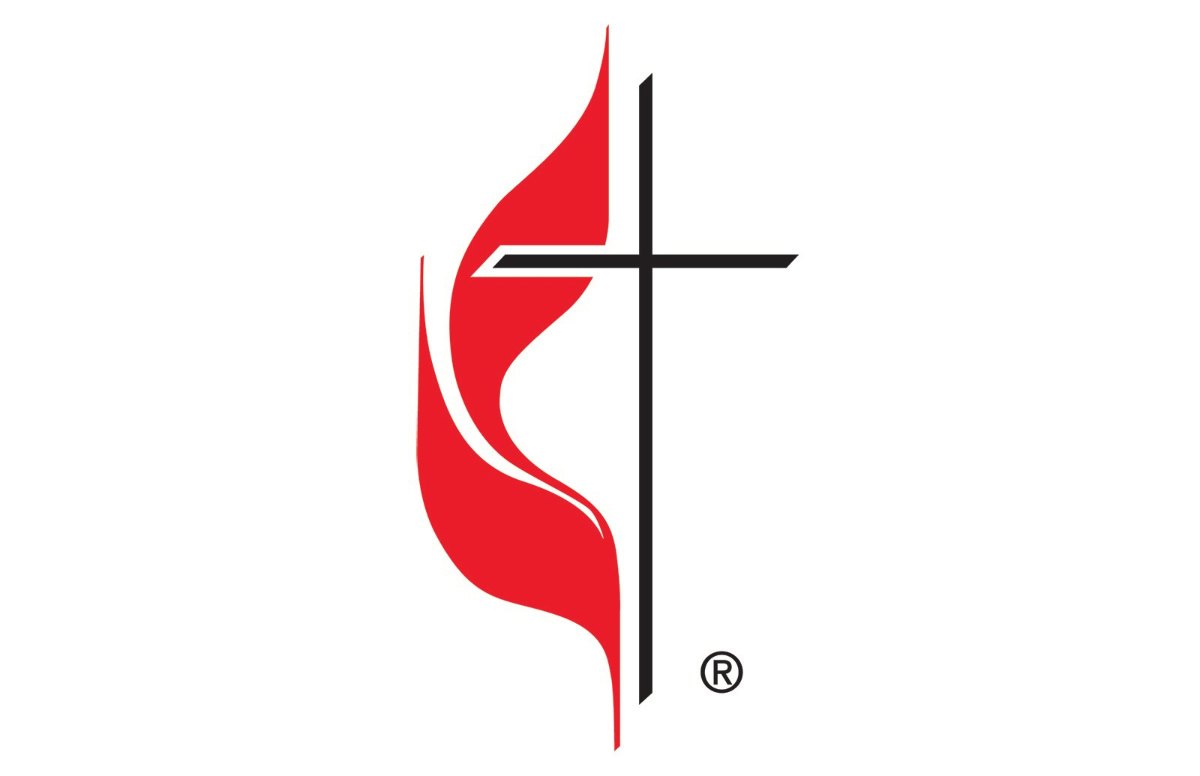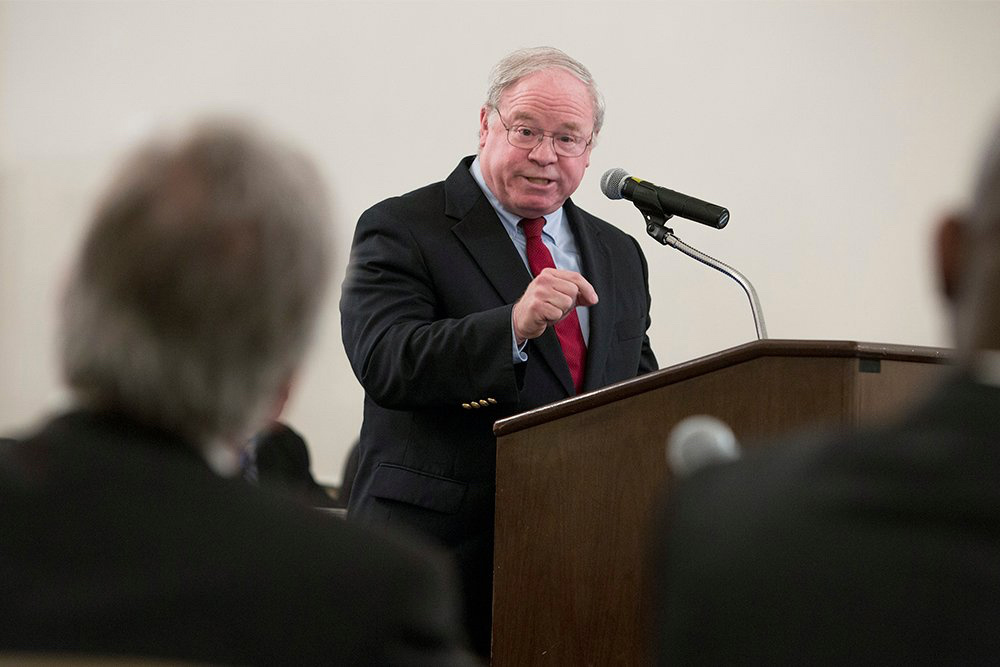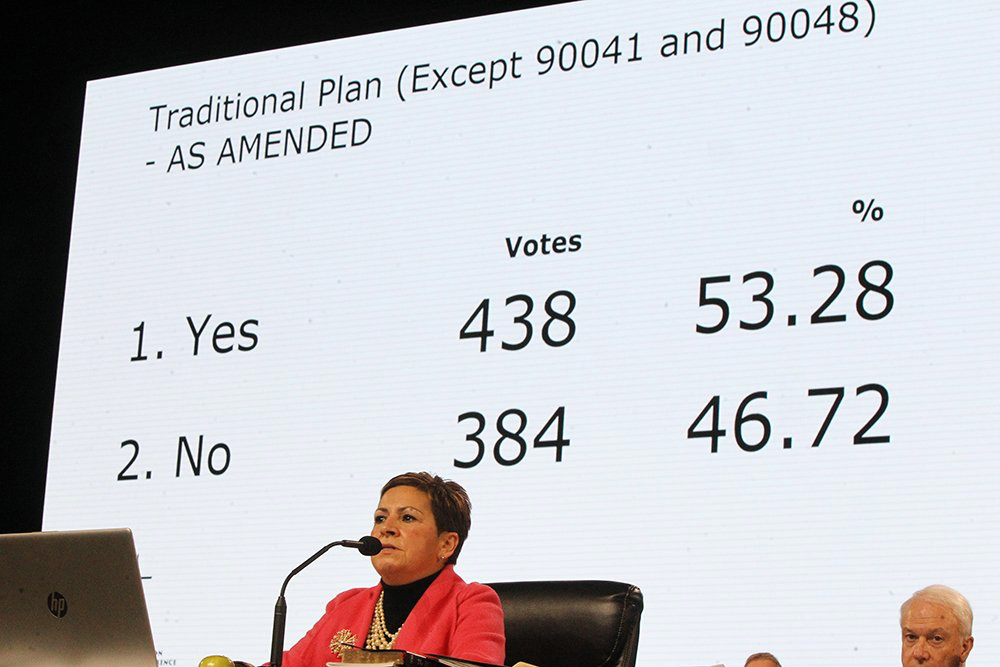Last week, when the United Methodist Church postponed – for the third time in as many years – a vote on an orderly plan to split the mainline Protestant denomination long riven by disagreement over the full inclusion of its LGBTQ members, some conservative United Methodists announced they were finally done: They would launch a new denomination in May, orderly plan or no.
And United Methodists across the theological spectrum were left asking a number of questions, not only about the logistics of congregations leaving one Methodist denomination to join another, but also about the meeting where delegates are expected to discuss those plans to split.
“There are more unknowns than there are knowns around delegations,” said Jan Lawrence, head of the Reconciling Ministries Network, a progressive group that advocates for LGBTQ inclusion.

The Cross and Flame is the official logo of the United Methodist Church. PICTURE: Courtesy of the United Methodist Church
For decades, debate over ordaining and marrying LGBTQ United Methodists has roiled the United Methodist Church, one of the largest Protestant denominations in the United States.
At a 2019 special session of the denomination’s General Conference, the denomination’s global decision-making body, delegates approved what’s known as the Traditional Plan. Backed by conservative United Methodists, the Traditional Plan strengthened the denomination’s standing bans on the ordination of LGBTQ clergy and same-sex marriage.
But after progressives and moderates rebelled against the Traditional Plan, leaders across theological divides negotiated a proposal to split the denomination called the Protocol of Reconciliation and Grace Through Separation. Delegates were expected to vote on that proposal at the 2020 General Conference meeting, to be held in Minneapolis.
Then COVID-19 happened. The meeting was postponed to 2021, then 2022.
Last week, the Commission on General Conference announced it was postponing the meeting again – this time to 2024. Though COVID-19 numbers have dropped in the United States, the commission said, delegates living outside the country are having trouble getting visas to travel to the in-person gathering.
For all this time, United Methodist leaders – right, left and centre – have held their collective breath. Leaders of the theologically diverse groups that negotiated the protocol urged their members to remain in the denomination. Conservatives agreed to suspend trials against clergy who are LGBTQ or who perform same-sex weddings.
For those conservatives, last week’s postponement was too much.
“We’re encouraging those who can find a pathway that is appropriate for them to go ahead and exit the denomination,” said Rev Keith Boyette, who leads the Transitional Leadership Council that is guiding the creation of the Global Methodist Church, the new conservative denomination.
Last year, the Transitional Leadership Council announced it planned to launch the denomination after the General Conference voted on the protocol. The postponement pushed up that timeline.
“The delay is what the problem is,” Boyette said.

Rev Keith Boyette responds to questions from Judicial Council members during an oral hearing on 22nd May, 2018 in Evanston, Illinois. PICTURE: Kathleen Barry/UMNS
Some conservative groups have questioned the reasoning for a third delay of the General Conference. Other groups are holding meetings this year — even other groups with international membership, according lay delegate John Lomperis, blogging for the conservative Institute for Religion and Democracy.
There also are questions about how churches and conferences can leave the United Methodist Church to join the new denomination. The Protocol of Reconciliation and Grace Through Separation would have allowed them to leave with their buildings and other assets. A “traditionalist” Methodist denomination was slated to receive $25 million over the next four years.
“Every theologically conservative local congregation and annual conference should have the right to join the Global Methodist Church with all of their property and assets intact,” the new denomination’s organisers said in the statement announcing its plans to launch this year.
Currently, the Book of Discipline allows annual conferences to instruct the board of trustees of a church to deed that church’s property to other Methodist or evangelical denominations in certain circumstances.
We rely on our readers to fund Sight's work - become a financial supporter today!
For more information, head to our Subscriber's page.
The 2019 special session of the General Conference also approved a disaffiliation plan that allows a congregation to make a “gracious exit” from the denomination by the end of 2023. It can leave with its property for “reasons of conscience” related to sexuality after paying the rest of the year’s apportionments, the next year’s apportionments and its pension liabilities.
But those provisions haven’t been applied equally across the country, according to Daniel Dalton, a lawyer who has represented Episcopal, Presbyterian (USA) and United Methodist congregations breaking from their denominations.
For those remaining in the United Methodist Church, there are plenty of questions as well.
For example, it was not immediately clear whether the postponed 2020 General Conference would replace the regularly scheduled 2024 General Conference. If so, would that mean the 2024 conference is canceled? Can delegates elected to the 2020 General Conference still serve in 2024? What if a lay delegate was ordained in the years since being elected?
Those questions will have to be answered by the Judicial Council, the denomination’s top court, according to the statement announcing the postponement.

Bishop Cynthia Fierro Harvey announces the results of the Traditional Plan votes late on 26th February, 2019. PICTURE: RNS/Kit Doyle
Another group already has rejected the idea of holding the General Conference meeting virtually during the pandemic. A report by the Commission on General Conference’s technology study team laid out a number of issues with such a meeting, including a lack of infrastructure and technology in some places, concerns about credentialing and verifying the identity of voters and the security of voting.
As United Methodists wrestle with these questions for two more years, Bishop Cynthia Fierro Harvey released a statement on behalf of the denomination’s Council of Bishops.
“God continues to do new things, making a way in the wilderness and streams in the wasteland,” said Fierro Harvey, who is president of the council.
“My prayer is that we have eyes to see, minds to know and hearts to love.”






